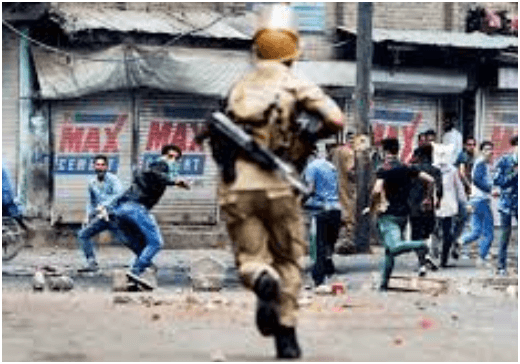Pakistan’s Urgent Call: Violence in Occupied Kashmir Sends Vital Signal for Islamabad’s Action
In a tense development that reverberates across the region, the escalation of violence in Occupied Kashmir has prompted an urgent call to action from Pakistan. This unfolding situation not only underscores the longstanding tensions in the disputed region but also signals Islamabad’s readiness to address the escalating humanitarian crisis and assert its stance on the Kashmir issue.
The recent escalation of violence in Occupied Kashmir has heightened concerns over the deteriorating security situation and the plight of civilians caught in the crossfire. Reports of civilian casualties, human rights abuses, and clashes between security forces and militants have fueled tensions and raised alarm bells both within the region and on the international stage.
The escalating violence in Occupied Kashmir has exacerbated an already dire humanitarian crisis, with reports of widespread displacement, loss of life, and restrictions on basic freedoms such as movement and communication. The international community has expressed growing concerns over the situation, calling for restraint, de-escalation, and respect for human rights principles.
In response to the escalating violence in Occupied Kashmir, Pakistan has issued an urgent call for international attention and intervention to address the humanitarian crisis and resolve the underlying political issues. Islamabad has underscored its commitment to supporting the rights of the Kashmiri people and advocating for a peaceful resolution to the decades-long conflict through diplomatic channels and multilateral forums.
The escalation of violence in Occupied Kashmir has broader implications for regional security dynamics and stability, with the potential to exacerbate tensions between India and Pakistan, two nuclear-armed neighbors with a history of conflict over the Kashmir issue. The risk of further escalation and miscalculation underscores the urgent need for dialogue, de-escalation measures, and confidence-building measures to prevent the situation from spiraling out of control.
The international community has a crucial role to play in addressing the escalating violence in Occupied Kashmir and facilitating a peaceful resolution to the longstanding conflict. Key stakeholders, including the United Nations, regional powers, and influential actors, must actively engage with both India and Pakistan to de-escalate tensions, promote dialogue, and uphold the rights and aspirations of the Kashmiri people.
Amidst escalating tensions and violence in Occupied Kashmir, there is an urgent need for all parties involved to exercise restraint, prioritize the protection of civilians, and refrain from actions that could further inflame tensions or escalate the conflict. Dialogue, diplomacy, and peaceful resolution of disputes must remain the cornerstone of efforts to address the underlying grievances and aspirations of the Kashmiri people.

